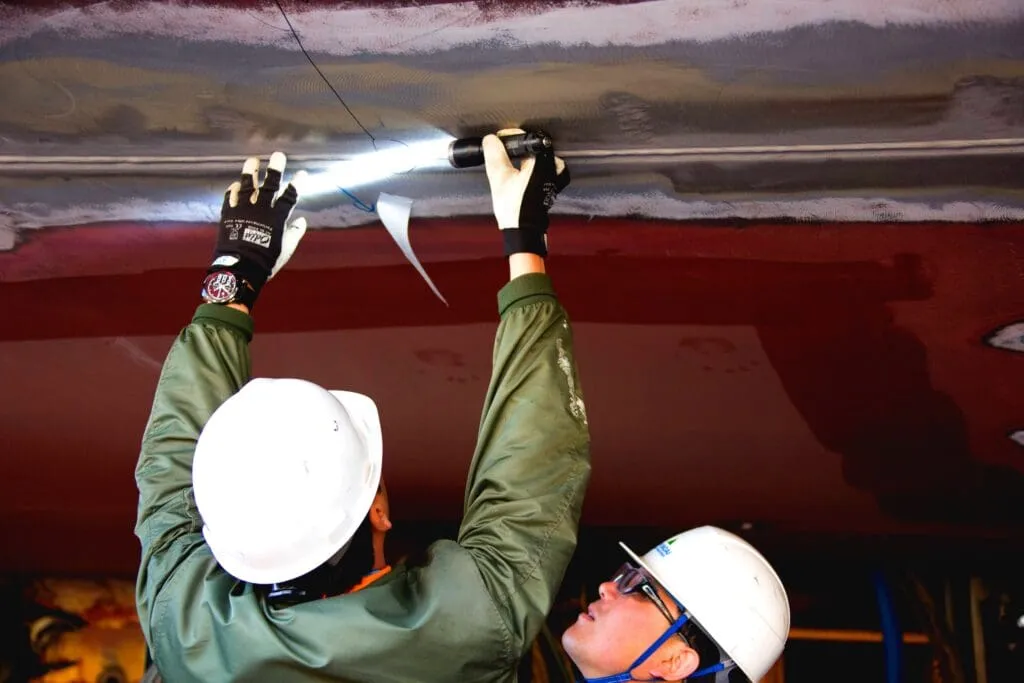
Contributing to energy security with five FSRUs in Europe
Formerly reliant on pipeline gas from Russia, Europe has turned to LNG and floating infrastructure to provide vital access to natural gas.
Höegh LNG is now Höegh Evi. Learn more about our evolving role in the industry. Höegh LNG is now Höegh Evi. Learn more about our evolving role in the industry.
Floating hydrogen terminals
A diverse energy mix equals a secure transition. That’s why Höegh Evi has taken the strategic decision to expand into the energy transition market. We are leveraging our extensive marine energy experience to develop energy infrastructure across multiple vectors, in turn opening access to new markets.
Together with our clients and partners, we are developing floating solutions for CCS, ammonia, hydrogen and other segments so that countries can ramp up clean energy imports.
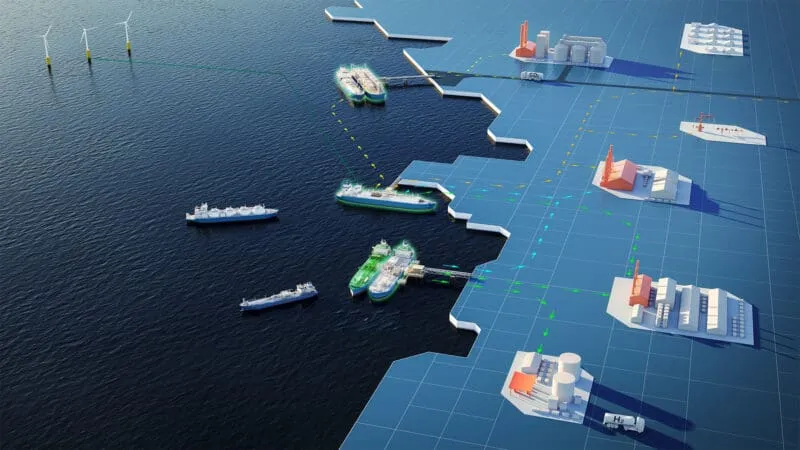
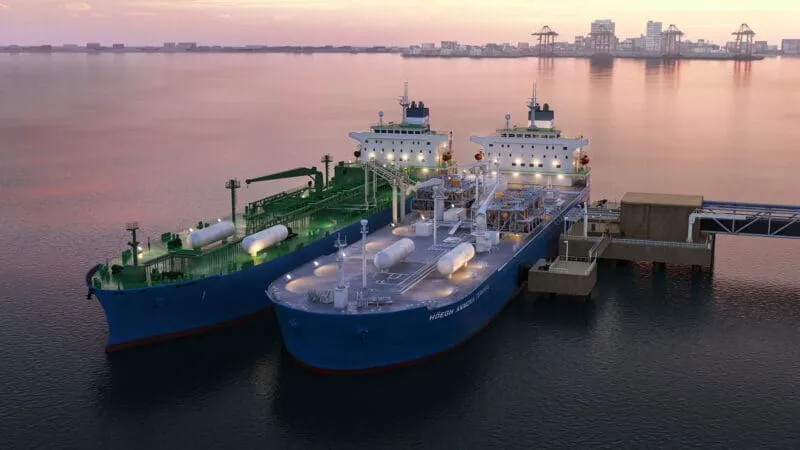
Marine terminals for ammonia and hydrogen imports
Building on our reputation as energy market pioneers, Höegh Evi is pioneering a groundbreaking ammonia to hydrogen project. In collaboration with Wartsila, BASF, Sustainable Energy, and Norwegian research institutes, we are developing an industrial-scale ammonia cracker to supply hydrogen to consumers. The technology will be FID ready by the end of 2025. Currently the pilot plant is under construction and set to be completed in 2024. Due to the flexibility of the ammonia cracker, it can be used on a Hybrid FSRU or dedicated Floating Hydrogen Terminal.
The Floating Hydrogen Terminal is adaptable in design and scale and has variable sendout capacity ranging from 30,000 tonnes H2 to 210,000 tons H2. It can accommodate storage from 10,000m³ up to 120,000m³ of ammonia.
As we continue to adapt to meet evolving energy needs, we are also developing floating ammonia terminals to import, store, and distribute liquid ammonia.
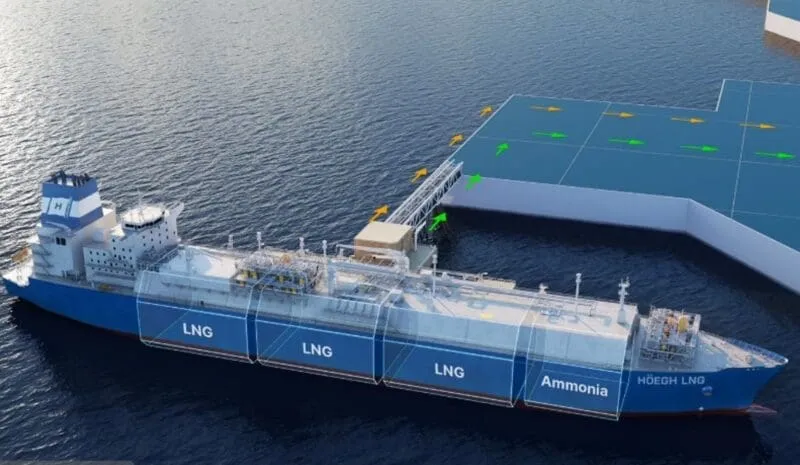
Höegh Evi is developing the world’s first floating ammonia-to-hydrogen cracker. The hybrid solution allows for parallel imports of LNG and H2, using existing infrastructure.
Höegh Hybrid FSRU (patent pending). An innovative, cost-effective solution, the Hybrid FSRU allows countries to scale up clean energy imports and transition away from fossil fuels faster.
Due to be operational by 2028, the Höegh Hybrid FSRU marks a significant milestone in energy infrastructure history. It offers dual delivery capability (LNG and clean energy) and has the flexibility to accommodate increasing hydrogen volumes over time. Because it uses existing infrastructure, the vessel is half the cost of a land-based terminal.
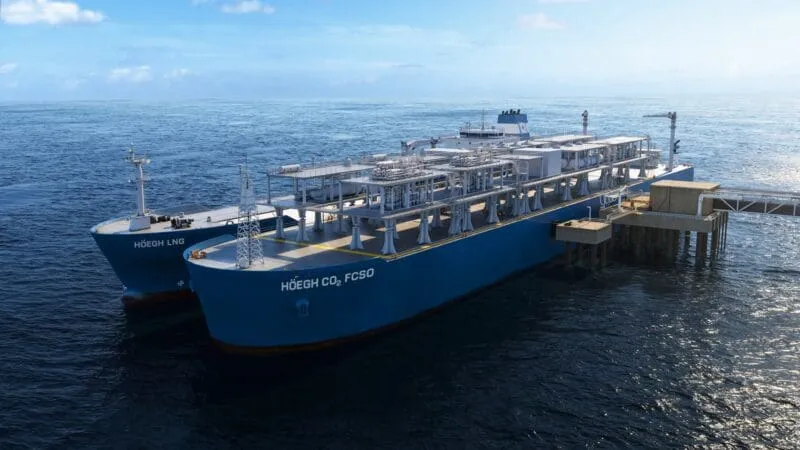
Innovative solutions for carbon transport and permanent storage.
Höegh Evi is committed to developing CCS (Carbon Capture and Storage) services that will help combat climate change. In partnership with Aker BP, we are creating a complete carbon transport and storage solution for industrial CO2 emitters in Northern Europe. Together, we are establishing a robust CCS value chain on the Norwegian Continental Shelf which will incorporate:
Our projects

Formerly reliant on pipeline gas from Russia, Europe has turned to LNG and floating infrastructure to provide vital access to natural gas.
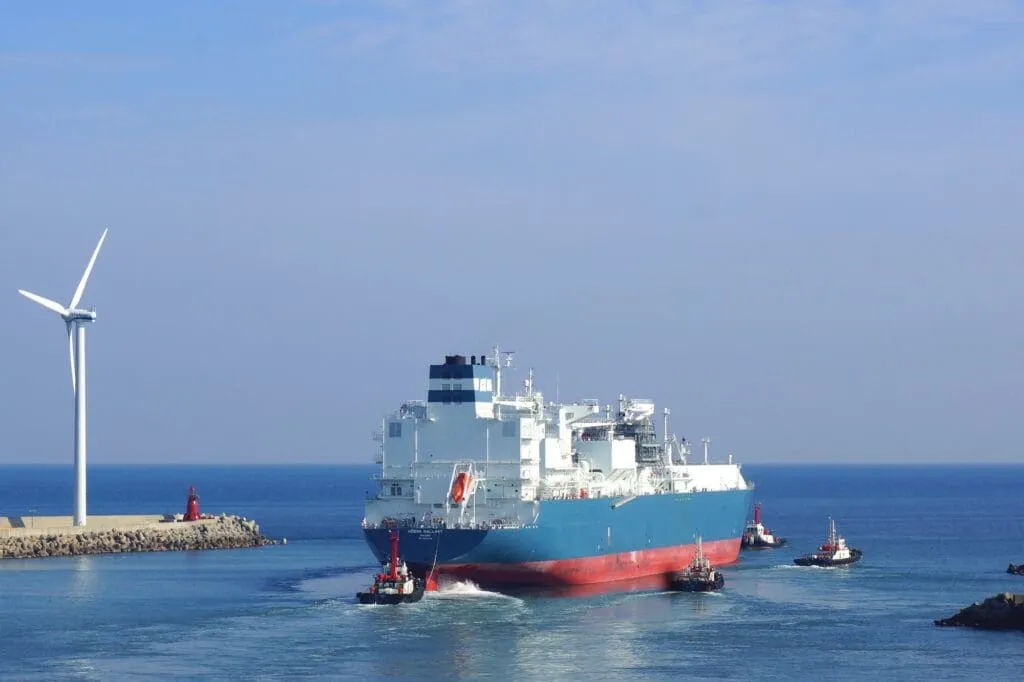
In 2024, Egypt was facing energy shortages and an acute need for natural gas.
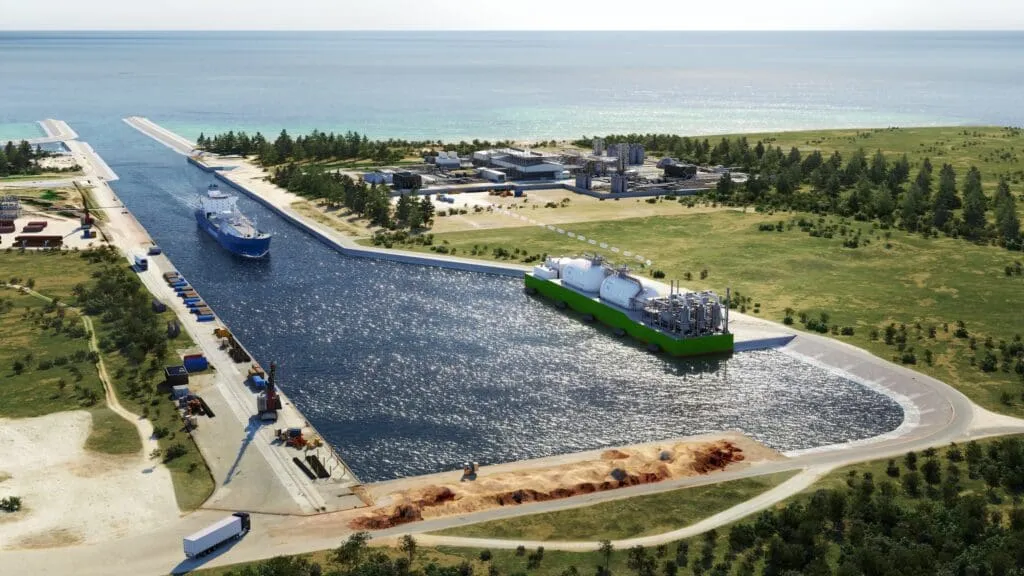
The H2 Import Terminal in Lubmin, Germany, will be the world’s first floating import terminal for green hydrogen.